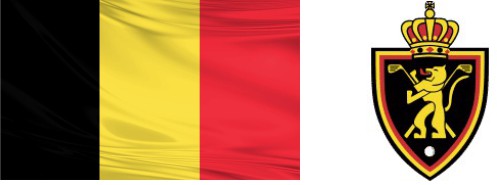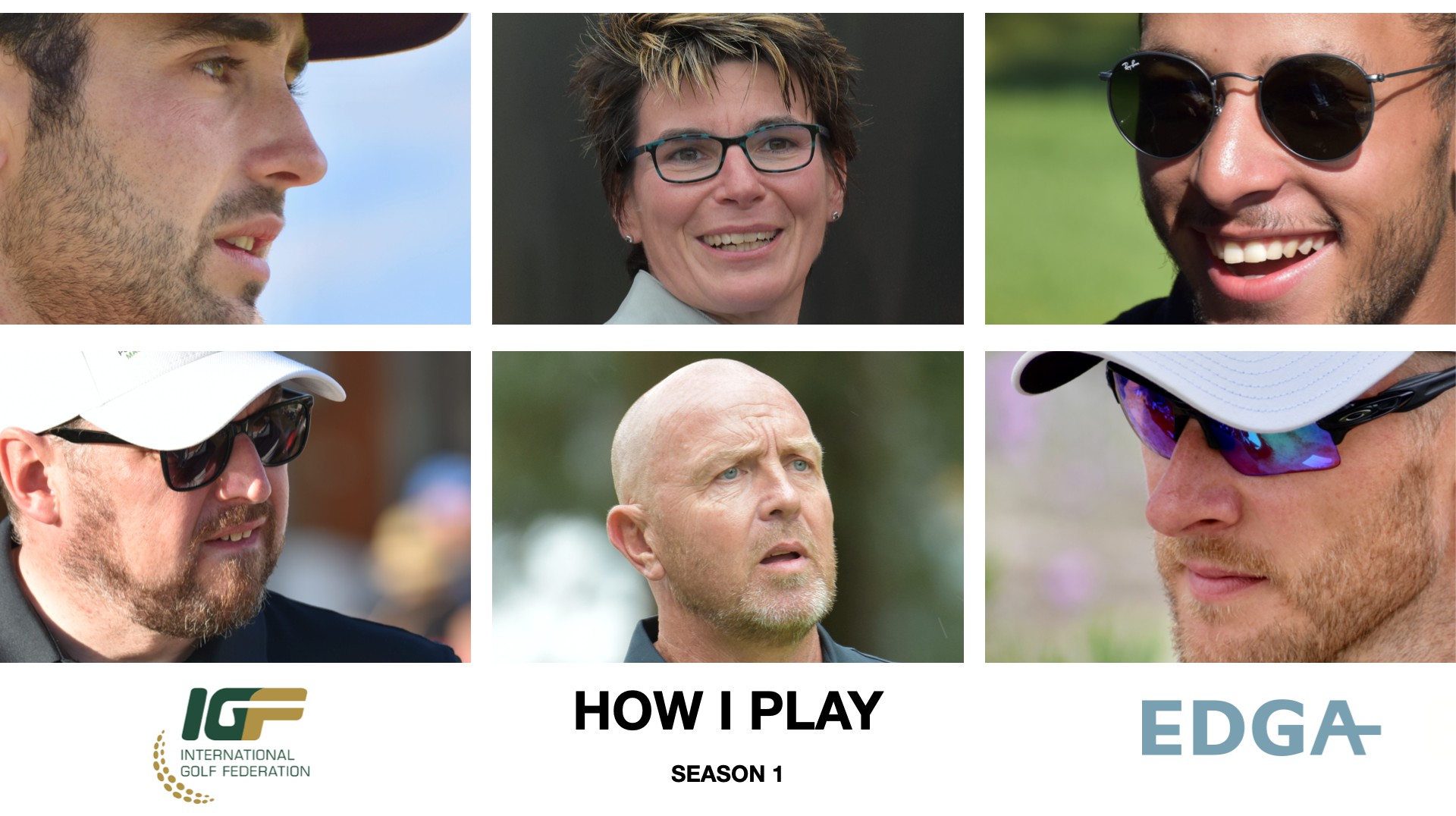
Who better to learn from than someone who has already traversed the path?
In "HOW I PLAY by EDGA", golfers with a variety of impairments share their experience and the strategies they have employed to adapt or adjust, enabling them to perform at the best of their ability.
HOW I PLAY also brings in highly qualified and experienced coaches who share their knowledge and insights on how some of the tips given by the players can help other players and coaches.
About the author
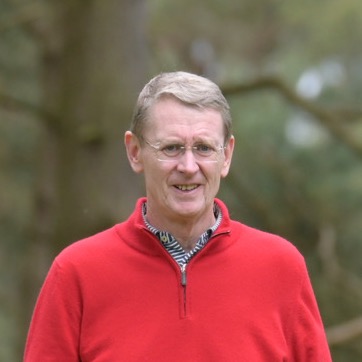 The series was conceived and produced on evidence based research by
Tony Bennett - Head of Disability and Inclusion for the International Golf Federation and President of EDGA. As a PGA Master Professional, he is well prepared to link the discussion and provide several key points and reflections for further study.
The series was conceived and produced on evidence based research by
Tony Bennett - Head of Disability and Inclusion for the International Golf Federation and President of EDGA. As a PGA Master Professional, he is well prepared to link the discussion and provide several key points and reflections for further study.
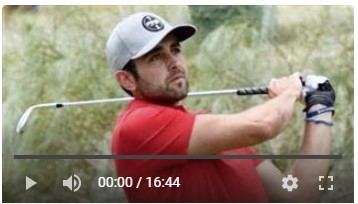
read more....
Juan has had luminaries such as Sir Nick Faldo say that his swing is one of the best that he has seen. PGA Tour star Brandt Snedeker was stopped in his tracks and took the time to watch Juan practice at the 2018 Emirates Australian Open, ahead of the groundbreaking Australian All Abilities Championship. Juan has turned himself into one of the best players in the world of golf for the disabled.
Juan has an impressive CV and as a lead leg golfer who does not use a prosthesis is one of the most easily identifiable players.
You can also read & listen to the Juan Postigo Arce story on EDGA profiles
| Time | Description |
|---|---|
| 00:51 | Juan explains what his impairment is |
| 01:47 | A year of surgeries |
| 02:20 | How he kept working on his body |
| 03:03 | The importance of having a good team around him |
| 03:37 | How he wanted to be just as strong as before the surgery |
| 04:41 | Not as young as he used to be. He’s 24! |
| 05:08 | The shots he finds most difficult |
| 06:47 | José talks about uneven lies |
| 07:48 | José gives his advice to help club golfers improve their balance |
| 08:41 | Juan shares a tip from when he was a ‘little guy’ to improve his balance |
| 09:35 | Juan shares his thinking on being strong |
| 11:00 | José gives his thoughts on how working with players that have a disability can improve coaches |
| 11:54 | Juan’s advice on patience and starting to play golf |
| 13:14 | The importance of impact. |
TOP SIX REFLECTIONS:
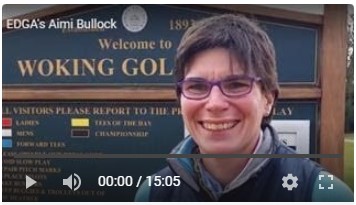
read more....
Aimi walks us through what she has to do the day before competing. PGA Professional Mark Taylor adds his insights to the conversation. Aimi plays golf left-handed.
You can also read & listen to the Aimi Bullock Story on EDGA profiles
| Time | Description |
|---|---|
| 00:53 | Aimi tells us about her disability |
| 01:26 | Explains what her first MS episode was like |
| 02:12 | Explains how MS affects her ability to play |
| 02:55 | The adjustments that she makes to be able to play |
| 03:27 | Mark explains the initial intake |
| 04:21 | Organising Aimi’s schedule from a fatigue avoidance standpoint |
| 05:09 | Key learnings - including how to get the most from her practice |
| 06:16 | How a shorter driver is helping her to hit more fairways |
| 06:58 | How Aimi prepares for an event |
| 08:17 | Dealing with sensory overload |
| 09:09 | Rest is as important as practice |
| 09:40 | The quickest way to the lowest score |
| 10:47 | Dealing with the weather and travel |
| 12:45 | Aimi’s advice for someone with a similar impairment. |
TOP FIVE REFLECTIONS:
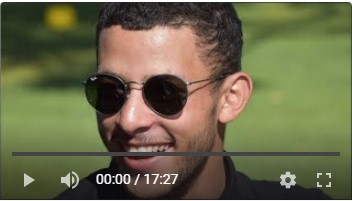
read more....
Adem has turned himself into one of the best players with a disability in the world, and qualified to play in both the 2018 & 2019 Australian All Abilities Championship which ran alongside the Emirates Australian Open. Adem also played in the EDGA Scottish Open played at the same time and over the same course at the European Tours Rolex Series Aberdeen Standard Investments Scottish Open.
You can also read & listen to the Adem Wahbi Story on EDGA profiles
| Time | Description |
|---|---|
| 00:18 | Adem talks about his impairment and how his brain and legs communicate |
| 00:45 | Adem explains how his impairment affects his ability to play |
| 01:29 | Adem takes us through a normal Monday training session |
| 03:03 | Adem explains where he is looking for big gains |
| 03:26 | Marcus talks us through how he works with Adem |
| 05:43 | Irons / Driver and Distance |
| 07:58 | Being competitive on golf courses 7,000+ yards |
| 08:03 | What are the forces that Adem generates |
| 09:50 | Breaking limitations |
| 10:51 | Sensory feedback |
| 12:42 | Marcus explains that every moment with Adem is a learning experience |
| 13:05 | The shots that Adem finds most difficult |
| 13:48 | Adem explains how his body attempts to control its balance |
| 14:11 | What the average club golfer may be able to learn |
| 15:40 | Fundamental movement skills |
| 16:27 | Adem’s advice to others. |
TOP FIVE REFLECTIONS:
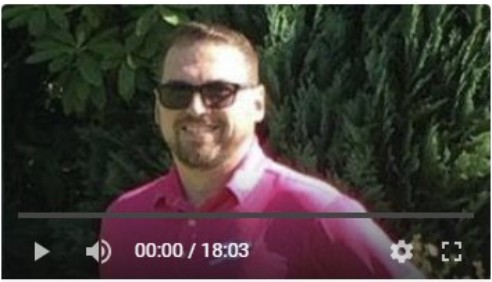
read more....
As a former competitive swimmer, Gareth has good upper body strength and he plays golf with a high leg amputation of his right leg, which as a right-handed golfer is his trail leg.
You can also read & listen to the Gareth McNeilly Story on EDGA profiles
| Time | Description |
|---|---|
| 00:52 | Gareth talks about his impairment |
| 02:08 | Explains his thinking about the course |
| 04:11 | Loss of power / upper body speed / staying balanced |
| 04:39 | Johnny talks about Gareth’s understanding of the game |
| 05:45 | Dealing with multi-day events and the care of his stump |
| 11:05 | Johnny talks about uneven lies |
| 12:21 | Johnny’s advice to Gareth |
| 13:44 | Dad’s advice - “hit your second shot first!” |
| 14:55 | Gareth’s advice to others |
| 15:49 | Putting pressure on oneself. |
TOP FIVE REFLECTIONS:
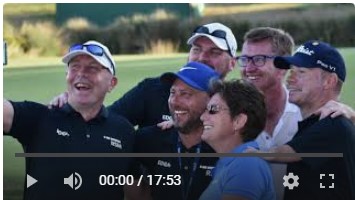
read more....
As an able-bodied player who played off a handicap of two, then with a mechanical prosthesis for the left leg that he lost in a motorcycle accident, and finally with an Ottobock Genium microprocessor leg.
Mike, who told his story at the European Tour’s 2019 Portugal Masters, and who is thankful to The R&A for supporting golf for the disabled is determined to help raise awareness that golf can be one of the most inclusive games of all.
You can also read & listen to the Mike Jones Story on EDGA profiles
| Time | Description |
|---|---|
| 00:47 | Mike explains his impairment |
| 01:11 | Mike talks about the various prosthesis, both mechanical and microprocessor |
| 01:48 | The Ottobock Genium microprocessor prosthesis and how it works |
| 03:27 | Mike throws some light on learning techniques to play with the different prosthesis |
| 05:23 | Saving shots on the course |
| 06:30 | Regaining confidence in the prosthesis and his technique |
| 08:06 | Howard explains what he thought when he first saw Mike play |
| 09:26 | Mike reveals the most challenging shots he finds on the course |
| 11:19 | Balance on a stilt and how the human foot works hard to maintain balance |
| 13:48 | Mike’s advice to someone with a similar disability who would like to give golf a try |
| 14:44 | Mike advises existing golfers to make the most of their talents and enjoy the process. |
TOP FIVE REFLECTIONS:
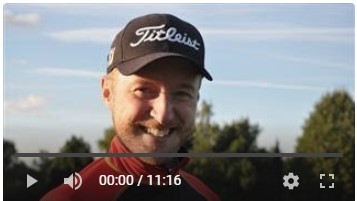
read more....
(paralysis of the arm caused by injury to the upper group of the arm's main nerves) in his lead arm affects his game. Timo plays right-handed and with his Erbs Palsy being in the left side, he and Duncan have found workarounds to allow Timo to be a valued National Team player who now plays off a two handicap.
Timo played in the 2018 Australian All Abilities Championship which ran alongside the Emirates Australian Open.
You can also read & listen to the Timo Klischan Story on EDGA profiles
In 2018 Duncan was the team Captain of the "World Team" & Winner of The ISPS HANDA Disabled Golf Cup within the World Cup of Golf Melbourne Australia.
During 2019 Duncan was appointed Team Advisor of the German National Team of the European Team Championship for Golfers with Disability Chiclana de la Frontera Spain.
| Time | Description |
|---|---|
| 00:28 | Timo explains the nature of his impairment |
| 01:44 | Timo explains how his impairment affects his ability to play |
| 02:25 | Duncan walks us through what Timo’s left side can do |
| 03:29 | Duncan answers Tony’s question on drills |
| 04:12 | Timo talks about his short game work |
| 05:10 | The most difficult shot that Timo faces on the golf course |
| 05:13 | How Duncan helps Timo with his bunker shots |
| 06:04 | Hear how Duncan has seen Timo develop as a player |
| 07:40 | The frequency of lessons that Timo has with Duncan |
| 08:06 | Hear the comment from Duncan that kept Timo going |
| 09:12 | Timo gives his advice to people with a similar impairment on how to get started. |
TOP FIVE REFLECTIONS:
MULLIGAN
'tough love and second chances'
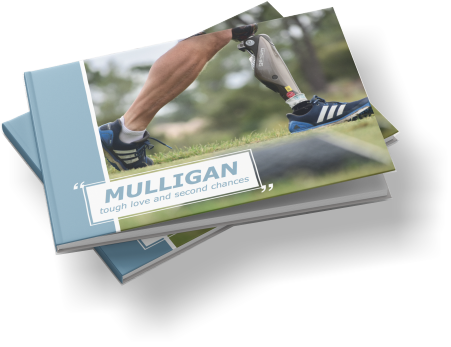
EDGA's first book is now available!
MULLIGAN 'tough love and second chances' is comprised of 18 personal accounts of players with a disability competing in golf, every story demonstrates how the power of the human spirit can move people to achieve their goals despite significant obstacles.
The EDGA "Give & Gift" campaign
For every donation of 25€ or more, EDGA will give a book to a hospital, rehabilitation/medical centre, or organisation to ensure that anyone who needs a lift, is able to read the inspiring words of MULLIGAN. As a token of our appreciation, we'll gift another book for you to keep and enjoy.
Available - NOW More Information




